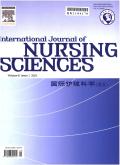Evaluating the feasibility and preliminary effects of an online compassion training program for nursing students: A pilot randomized controlled trial
IF 3.1
3区 医学
Q1 NURSING
引用次数: 0
Abstract
Objectives
This study aimed to assess the feasibility of an online compassion training program for nursing students and preliminarily investigate its effects on mindfulness, self-compassion, and stress reduction.
Methods
This study employed a randomized controlled trial design. Second-year students from a nursing college in Guangzhou, China, were recruited as research participants in August 2023. The intervention group participated in an 8-week online compassion training program via the WeChat platform, comprising three stages: mindfulness (weeks 1–2), self-compassion (weeks 3–5), and compassion for others (weeks 6–8). Each stage included four activities: psychoeducation, mindfulness practice, weekly diary, and emotional support. Program feasibility was assessed through recruitment and retention rates, program engagement, and participant acceptability. Program effectiveness was measured with the Mindful Attention Awareness Scale, Self-Compassion Scale - Short Form, and Perceived Stress Scale.
Results
A total of 28 students completed the study (13 in the intervention group, 15 in the control group). The recruitment rate was 36.46%, with a high retention rate of 93.3%. Participants demonstrated high engagement: 69.2% accessed learning materials every 1–2 days, 93.3% practiced mindfulness at least weekly, with an average of 4.69 diary entries submitted per person and 23.30 WeChat interactions with instructors. Regarding acceptability, all participants expressed satisfaction with the program, with 92.4% finding it “very helpful” or “extremely helpful.” In terms of intervention effects, the intervention group showed a significant increase in mindfulness levels from pre-intervention (51.54 ± 10.93) to post-intervention (62.46 ± 13.58) (P < 0.05), while no significant change was observed in the control group. Although there were no statistically significant differences between the two groups in post-intervention self-compassion and perceived stress levels, the intervention group showed positive trends: self-compassion levels increased (35.85 ± 8.60 vs. 40.85 ± 5.54), and perceived stress levels slightly decreased (44.77 ± 8.65 vs. 42.00 ± 5.77).
Conclusions
This pilot study demonstrated the feasibility of an online compassion training program for nursing students and suggested its potential effectiveness in enhancing mindfulness, self-compassion, and stress reduction. Despite limitations such as small sample size and lack of long-term follow-up, preliminary evidence indicates promising prospects for integrating such training into nursing education. Further research is warranted to confirm these findings and assess the sustained impact of this approach on nursing education and practice.
评估针对护理专业学生的在线同情心培训项目的可行性和初步效果:随机对照试验
目的 本研究旨在评估针对护理专业学生的在线同情心培训项目的可行性,并初步调查其对正念、自我同情心和减压的影响。方法 本研究采用随机对照试验设计。本研究采用随机对照试验设计,于 2023 年 8 月招募了中国广州某护理学院的二年级学生作为研究参与者。干预组通过微信平台参加为期 8 周的在线慈悲训练课程,包括三个阶段:正念(第 1-2 周)、自我慈悲(第 3-5 周)和同情他人(第 6-8 周)。每个阶段包括四项活动:心理教育、正念练习、每周日记和情感支持。通过招募率和保留率、计划参与度和参与者接受度来评估计划的可行性。通过正念注意力意识量表、自我同情量表--简表和感知压力量表来衡量计划的有效性。结果共有 28 名学生完成了研究(干预组 13 人,对照组 15 人)。招募率为 36.46%,保留率高达 93.3%。参与者的参与度很高:69.2%的参与者每1-2天访问一次学习材料,93.3%的参与者至少每周进行一次正念练习,平均每人提交4.69篇日记,与指导教师进行23.30次微信互动。在可接受性方面,所有参与者都对项目表示满意,92.4%的人认为 "非常有帮助 "或 "非常有帮助"。在干预效果方面,干预组的正念水平从干预前(51.54 ± 10.93)显著提高到干预后(62.46 ± 13.58)(P < 0.05),而对照组则没有显著变化。虽然两组在干预后的自我同情和感知压力水平上没有明显的统计学差异,但干预组显示出积极的趋势:自我同情水平有所提高(35.85 ± 8.60 vs. 40.85 ± 5.54),感知压力水平略有下降(44.77 ± 8.65 vs. 42.00 ± 5.77)。尽管存在样本量小、缺乏长期跟踪等局限性,但初步证据表明,将此类培训融入护理教育的前景广阔。为了证实这些研究结果并评估这种方法对护理教育和实践的持续影响,有必要开展进一步的研究。
本文章由计算机程序翻译,如有差异,请以英文原文为准。
求助全文
约1分钟内获得全文
求助全文
来源期刊

International Journal of Nursing Sciences
Nursing-Nursing (all)
CiteScore
6.10
自引率
2.60%
发文量
408
审稿时长
25 days
期刊介绍:
This journal aims to promote excellence in nursing and health care through the dissemination of the latest, evidence-based, peer-reviewed clinical information and original research, providing an international platform for exchanging knowledge, research findings and nursing practice experience. This journal covers a wide range of nursing topics such as advanced nursing practice, bio-psychosocial issues related to health, cultural perspectives, lifestyle change as a component of health promotion, chronic disease, including end-of-life care, family care giving. IJNSS publishes four issues per year in Jan/Apr/Jul/Oct. IJNSS intended readership includes practicing nurses in all spheres and at all levels who are committed to advancing practice and professional development on the basis of new knowledge and evidence; managers and senior members of the nursing; nurse educators and nursing students etc. IJNSS seeks to enrich insight into clinical need and the implications for nursing intervention and models of service delivery. Contributions are welcomed from other health professions on issues that have a direct impact on nursing practice.
 求助内容:
求助内容: 应助结果提醒方式:
应助结果提醒方式:


